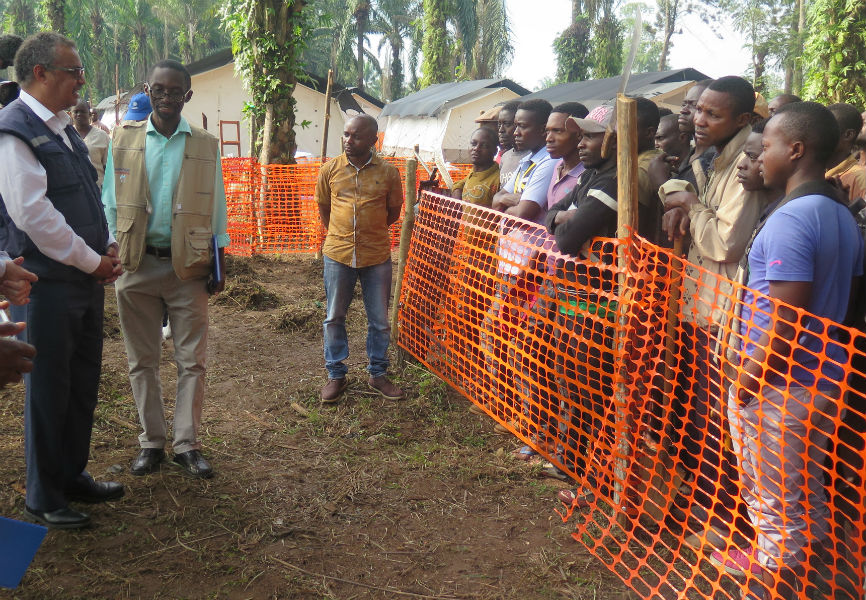The Ebola outbreak in the Democratic Republic of Congo (DRC)—a country long racked by conflict—has yet to be contained after six months and is threatening to spread to neighboring countries.
Over 800 cases have been reported with 505 recorded deaths. Still, there are some reasons for optimism. Eurasia Group healthcare expert Sarah Hassan discusses recent developments in the second-largest Ebola outbreak ever.
How has the long history of political and armed conflict in the region (DRC and surrounding countries) affected the disease's spread?
An effective Ebola response requires accurate population monitoring, personnel management, and an efficient distribution system for medical supplies, all of which are more challenging in an unstable environment. The eastern part of the country, where the outbreak began, has been the site of successive armed rebellions against the government ever since the formal end of the second Congo War in 2003. Distrust of government and international institutions runs high, security concerns deter international actors, and displaced people increase the risk of the disease crossing into other countries. Uganda and Rwanda are on high alert, employing screenings at airports and mandatory vaccinations for essential health workers.
In this environment, contact lists, the backbone of disease monitoring, are seemingly failing to monitor at-risk people. Contact lists are built by investigating who has been in contact with an infected person. The people on this list are then monitored and vaccinated to limit the spread of the disease. According to medical journal The Lancet, only 20% of new cases are being recorded on contact lists, suggesting that many at-risk people are not being identified. With poor disease monitoring, a targeted vaccination strategy is less likely to work, forcing the administration of vaccines to everyone in a large geographic areas and raising the risk of a vaccine shortage.
What has been the most important aspect of the response to this outbreak?
The private sector's cooperation has been one bright spot. In January 2016, the GAVI Alliance, a public-private partnership organization focused on improving vaccine access in high risk areas, agreed to pay Merck $50 million in exchange for a commitment from the pharmaceutical giant to carry out final clinical trials of an Ebola vaccine and provide supplies of the drug in the case of an outbreak. Merck followed through on development, got its groundbreaking drug with a 90% efficacy rate approved by the WHO, and is now providing it to the DRC. As part of its commitment, Merck will maintain a stockpile of 300,000 vaccines, refilling them as more are needed.
In addition, many NGOs are on the ground in the DRC, battling the disease despite calls from nations such as the US for its health personnel to withdraw because of security concerns. Doctors Without Borders, for example, has more than 200 health workers working in the field and has vaccinated roughly 5,000 health workers on the front lines of the outbreak.
What lessons can be learned from this health crisis?
Despite the fragmentation in recent years of global health policies and governance, the international community has shown resilience in dealing with the Ebola outbreak. The success of the public-private partnership at the center of the vaccination and containment strategy should encourage policymakers to take a harder look at where else similar arrangements could work. Though Ebola continues to spread in the DRC—another complicating factor is that this outbreak is centered in densely populated peri-urban environments rather than rural areas—the availability of the vaccine has helped to avert the catastrophic death tolls of the West African outbreak in 2014. Still, an erosion of faith in government and international institutions will continue to pose challenges for effective coordinated responses to health crises.

 WHO officials visit Beni North Kivu Province, DRC, to evaluate developments in the fight against Ebola. Photo MONUSCO/Alain Coulibaly.
WHO officials visit Beni North Kivu Province, DRC, to evaluate developments in the fight against Ebola. Photo MONUSCO/Alain Coulibaly.